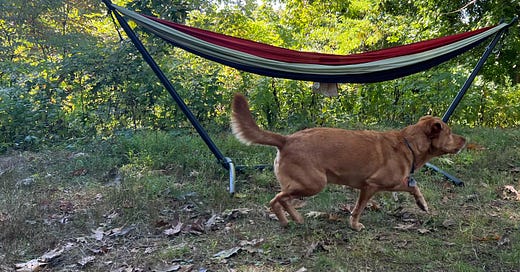This is an excerpt from a letter I wrote my Dad a few years ago, after he told me that as an environmentalist, he was horrified by the idea of humanity-as-it-is-today colonizing other planets.
I probably learned this from you: about 3 billion years ago, cyanobacteria produced so much oxygen they permanently changed the Earth’s climate and caused a mass extinction event. They were as close to mindless as life can get–they had no idea what they were doing to the world, and wouldn’t have had the concept of a responsibility to stop it even if they could somehow be told. Today, we humans are shifting the balance of gasses in the atmosphere again, also unintentionally, also with devastating consequences. It’s so frustrating. Even though we’re individually much smarter and on average much kinder than a cyanobacterium, collectively our impact on the atmosphere is almost as mindless. That’s part of the Anthropocene: the new geological age of this planet characterized by our careless effects. If you slice the world up by time periods, we live in the Anthropocene.
I’m not a geologist, though, so here’s how I tend to slice the world up instead: here’s the expanding circle of empathy and caring, and there’s everything that’s not in it yet. When we interact with the world in a mindful way, we make it a better place. I make my dog’s life better by directly caring for him, while I carelessly harm other animals indirectly. If you came into a person’s house and saw an animal there dying of neglect, you’d think “this is an unusually bad or impaired human, to fail to care for this pet.” But if you walked a hundred yards away into a nearby woods and saw the same animal dying of the same condition, having been wild all its life, you wouldn’t see it as aberrant. That’s just how it is in the woods. We might say that the person’s house is in the noosphere, the mindfully-shaped world, while the woods are outside it. The noosphere, as I define it, is better by definition. If you forced a human or animal out of the noosphere, into the state of nature or into a factory farm beyond the reach of empathy, you’d be doing them an injury. To the extent we bring them in, we’re therefore doing them a kindness. If I were a gazelle and had to choose between being killed by a human hunter or an animal predator, I’d rather the human since they usually try to make sure their kills don’t suffer. Lions don’t give a shit. And if it’s a human who kills me, I’d rather a rich modern human, since a caveman might not have the energy to spare to make sure I got put out of my misery if things went wrong.
Here in the noosphere, climate change is a problem, a thing that ought not to be happening. Outside the noosphere, there is no “ought” on that scale, just the individual wishes of individual creatures. The mass extinction events in eons past were not mistakes, not sins. They were something worse: natural. A thousand-odd years ago, before Kupe the Navigator discovered New Zealand, it had no humans to steward or despoil it. It may still have been beautiful, in some theoretical, tree-falls-in-the-forest sense. But it was a place of nameless horror our minds refuse to grasp.
Seen in this light, our growth in power as a civilization and our moral development as a civilization are complementary to each other, part of the same project: expanding the noosphere. Industrialism and environmentalism aren’t in conflict; they’re oars on opposite sides of the same canoe. Today there are many places where an ugly death is normal. Tomorrow there will be fewer.
We don’t know the limits to our reach, and therefore we can’t set limits on our responsibility. If there is any hope that with godlike technology, we could prevent the ghastly cruelties of nature, then we must try! If we fail, the anthropocene will be succeeded by another ordinary natural age, a world entirely neglected, where, for example, if there’s no evolutionary reason for a species not to spend the last few years of its life in constant agony, there’s no reason that can’t be the status quo for that species for millions of years. Success, to me, means shaping the world entirely to our wishes, down to the atom–wishes that surely include diversity of life, that surely include beauty, probably still a tiny little bit of suffering to keep things interesting. Not a uniformly human world, but a uniformly humane one. The next geologic age should be that, the Nooscene, not the nameless one that would follow our abdication. I’m terrified technology will destroy the world by accident. But I’m still a technologist, because the alternative is worse.
You know what, that wasn’t grandiose enough. How about this: somewhere a few hundred light years from Earth, there’s an Earthlike planet where intelligent life never evolved, but full of wondrous and diverse life nonetheless, with a landscape of pristine natural beauty. In five thousand years, its sun will go nova and destroy it all. Let’s go save that world.




